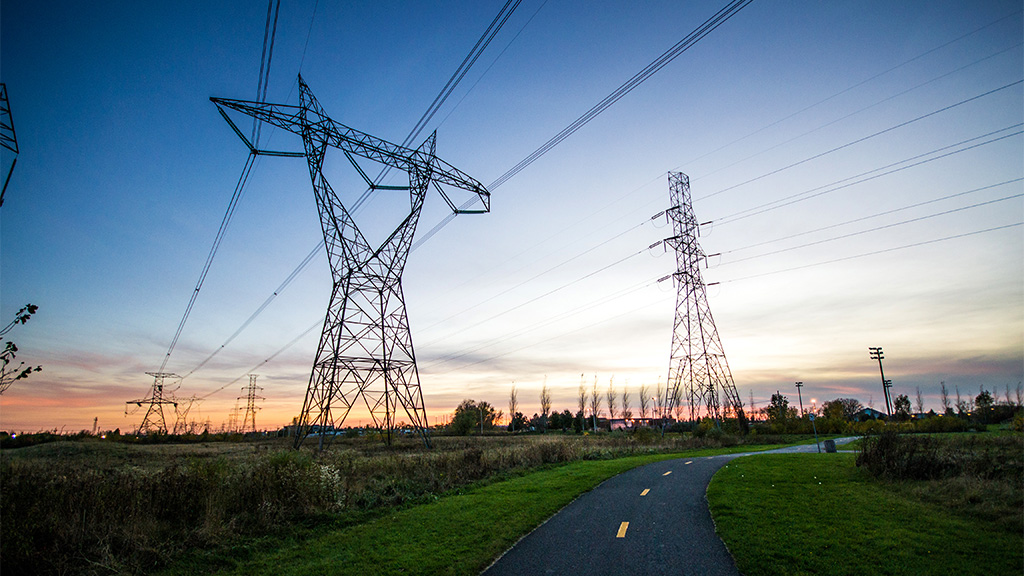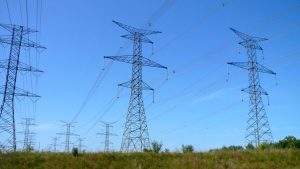Canada needs to develop a National Electricity Strategy to ensure climate and energy goals can be attained by 2035, says the CEO of Electricity Canada.
With Canada aiming to have a zero-carbon emitting energy grid by 2035 and to be completely carbon neutral by 2050, it’s past time for a national strategy that can harmonize the three levels of government and the private sector to make sure these goals can be met, said Francis Bradley.
“We don’t have an articulated national strategy with respect to electricity that addresses the challenges the sector faces,” Bradley said.
“The bottom line is the electricity sector is the sector upon which the decarbonization of the economy is going to be undertaken.”
Hanging on his wall behind his desk, Bradley has a clock counting down the time until the 2035 goal.
“The sector needs to be net-zero in 4,668 days. Which sounds like a really big number, but it isn’t,” he said.
One of the challenges facing the sector is the time it takes to get massive energy and electrical projects completed.
Electricity Canada’s recent report, Build it: The state of the Canadian Electricity Industry 2023, notes lengthy bureaucracy can prevent Canada meeting its energy goals, citing a wind to hydrogen project in Newfoundland and Labrador that will take only two to three years to build but “eight to 10 years to permit.”
To meet the 2050 goal of a net-zero Canada, the current electrical grid will need to expand by two to three times its current size.
Bradley said one of the benefits of having a national strategy around electricity would be the pooling of resources to find ways to get projects built faster and actually accomplish the necessary expansion.
We’re hoping it is going to be the most consequential budget with respect to green energy and with respect to the electricity sector that we’ve ever seen,
— Francis Bradley
Electricity Canada
He pointed to the COVID-19 pandemic as an example of how society can move mountains when working together.
Bradley recalled the general impression at the beginning of the pandemic that a vaccine traditionally takes years, even decades to develop and patent and distribute.
“People were worried they would be in lockdown for years because of that. But it only ended up being months,” he said.
“When governments and civil society and academia and when everybody gets on the same page, we can get things done.”
On March 28, the Federal government is going to release its 2023 budget and Bradley has high hopes for what it includes.
“We’re hoping it is going to be the most consequential budget with respect to green energy and with respect to the electricity sector that we’ve ever seen,” he said.
He hopes the government will announce it is dedicating resources to the creation of a National electricity strategy.
A national strategy could also help address a lack of co-ordination between levels of government, labour shortages and supply chain issues all with the focus of ensuring Canada’s electrical grid can be a reliable source of clean energy.
And therein lies another important aspect of what lies ahead for the sector: reliability.
“Resilience today is so critical and we see that every time there’s a major weather event,” he said.
As climate related weather invests intensify, the electrical grid is more at risk.
“As we increase electrification, the resilience of the system and the importance of that resilience is going to be greater but it’s also something that continues to be a moving target,” said Bradley.
If the grid is going to grow by three times, become more resilient and go green in 12 years, the sector is going to need financial support, he said.
Bradley said more taxpayer support from the government is essential in meeting these goals as the current structure of relying on ratepayers to fund the system could become too costly for the average household, calling it an issue of “fairness and equity.”
He said while it is obviously good for the electrical sector to have so much growth, the overarching goal is one focused on the public good.
“This is something that is an overall national objective and it’s to address climate change and the impact across the economy, not specifically electricity.”
But Bradley said Canada has made strides in developing green tech.
“We’ve got the ITCs, we’ve had energy efficiency programs over the year, but we don’t have anything that ties it all together,” he said.
“First and foremost, we need that strategy.”











Recent Comments
comments for this post are closed